Coronavirus: Sophie Raworth's deserted London
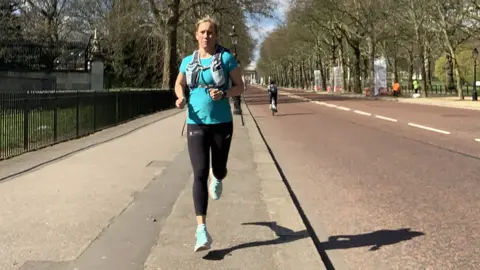 BBC
BBCFor the past two weeks, since the lockdown restrictions began, BBC news presenter Sophie Raworth has been running to work at lunchtime to present the BBC News at Six and Ten, taking pictures as she passes some well-known landmarks. Here she describes what it is like to commute through the now deserted streets of the capital.
The silence in the centre of London is eerie now. I have lived in this city for most of my life and I'm used to dodging crowds on the streets, being crammed into tube trains, shoulder to shoulder with my fellow commuters.
I have always loved the buzz of London, the cacophony of voices from all over the world, and now suddenly it has all gone.
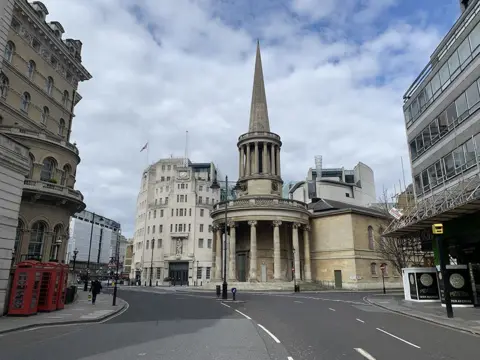 Sophie Raworth
Sophie RaworthOur newsroom is in the centre of London, by Oxford Circus, Europe's busiest shopping street with nearly half a million visitors a day. Now there are more pigeons than people. They must be wondering where we've all gone.
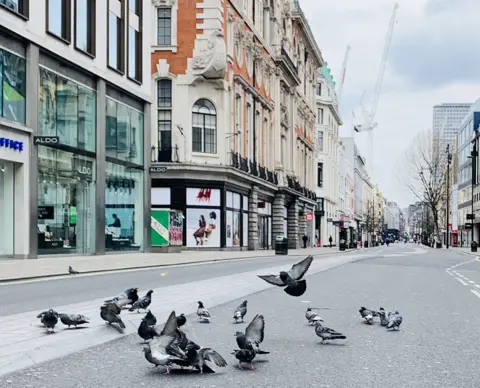 Sophie Raworth
Sophie RaworthI live about six miles from the BBC. Over the past fortnight, I've been zigzagging my way along different streets into the capital, now in its shutdown state. And it is quite extraordinary. Every so often I just stop, look around me and listen.
It's the silence that is so unnerving. A stillness that I have never felt in London before. The other day I stood in Leicester Square and gasped out loud. Nothing was moving around me.
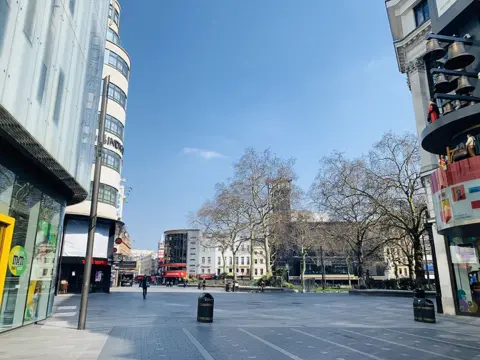 Sophie Raworth
Sophie RaworthThe heart of London and all I could hear was a flag flapping on top of one of the shut-down cinemas.
Around the corner, China Town was ablaze with colour, but all the restaurants have closed their doors, the constant queues of people have gone.
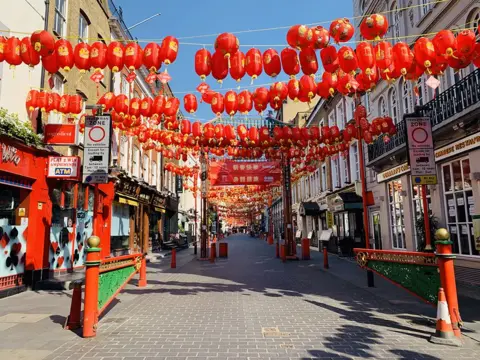 Sophie Raworth
Sophie RaworthEven Piccadilly Circus, busyness personified, is not itself any more. The lights are still on but who's looking? Giant adverts have been replaced by tributes to NHS workers and the emergency services.
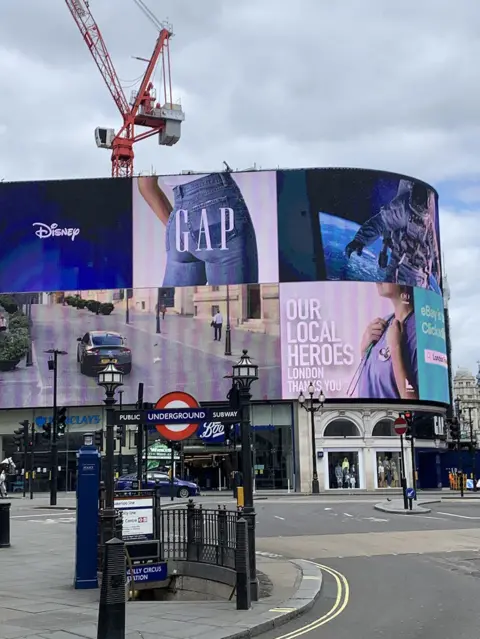 Sophie Raworth
Sophie Raworth
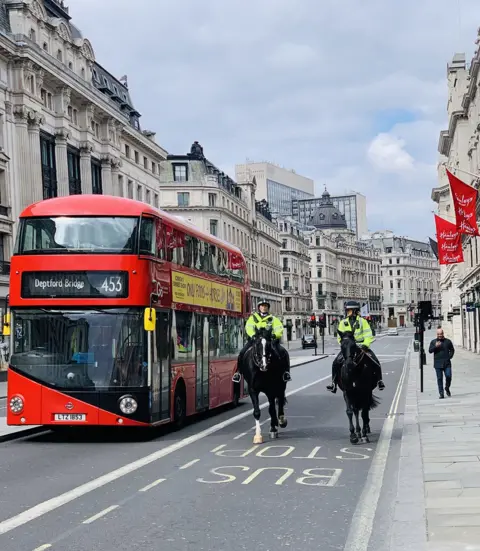 Sophie Raworth
Sophie Raworth
Waterloo, Paddington, St Pancras - some of London's busiest main train stations - through which millions of people pour every day. Now there are just a few passengers milling around looking a little lost, and railway staff, in their fluorescent jackets eyeing me quizzically, then smiling and waving as I run past.
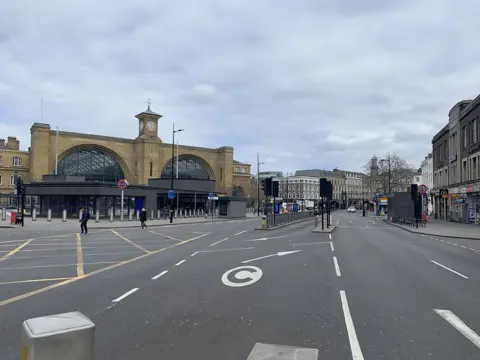 Sophie Raworth
Sophie RaworthRegent Street, Covent Garden, Knightsbridge - people flock to London for its shops. But now unless they're selling essential items, their doors are closed.
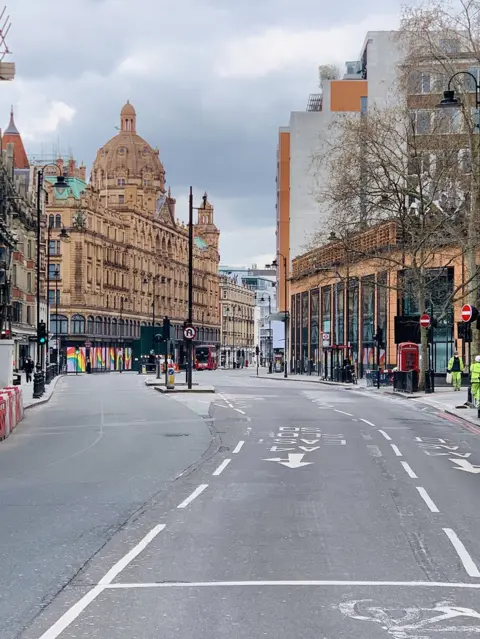 Sophie Raworth
Sophie Raworth
Harrods, shut until further notice for the first time in 170 years, has swapped the glamorous mannequins in its window displays for giant murals of NHS rainbows instead.
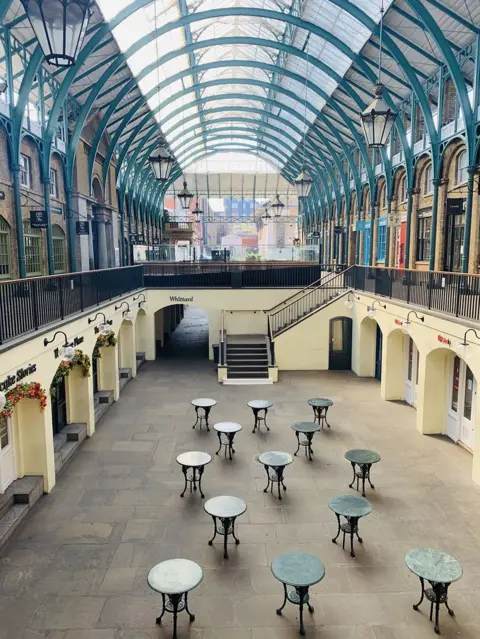 Sophie Raworth
Sophie Raworth
Covent Garden is usually so bustling with tourists and shoppers that I wouldn't try to run through it. But now I can hear my footsteps echo as I pass the shuttered shops. I have the market all to myself.
I ran down The Mall this week. In three weeks' time I should have been running along with tens of thousands of exhausted people about to cross the finish line of the 40th London Marathon.
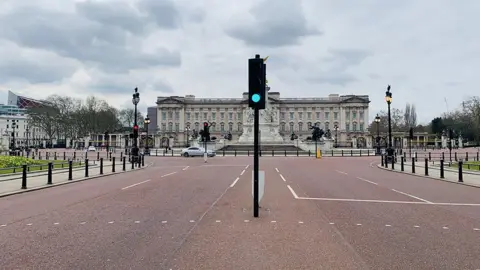 Sophie Raworth
Sophie RaworthInstead the ExCel conference centre in east London, where we were supposed to pick up our race numbers, is now full of hospital beds for thousands of coronavirus patients.
And I'm running to work through the streets of London alone - because I'm no longer allowed to run with anyone else.
It is the stillness of this city that I find most strange. I can hear bird song and people's conversations from many feet away. The sound of an aircraft now takes me by surprise. London feels like an abandoned film set.
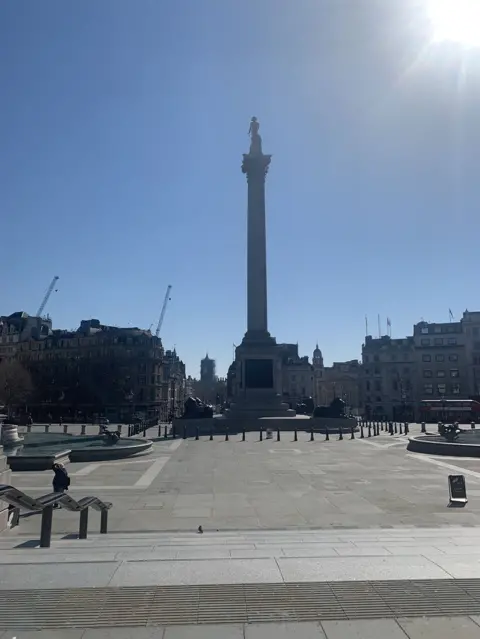 Sophie Raworth
Sophie Raworth
As I run, my mind projects on to the city a kaleidoscope of memories, layer upon layer, of my family, friends, places, parties that I've been to, as if though they've all gone. There is a strangeness about this time.
My children will tell their children about these weeks, maybe months, when our city stopped. London's life will return, the noise and crowds will be back.
Until then, I will continue to commute to work on foot and marvel at this moment in time when my city stood still.
All photographs by Sophie Raworth
